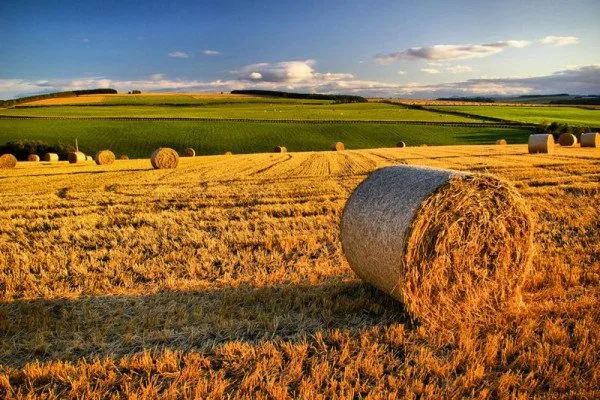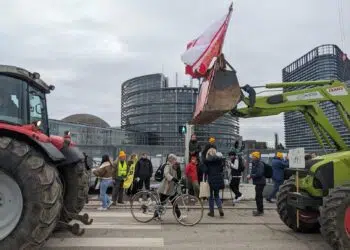from our envoy in Strasbourg – The European Commission is not changing its mind: there is no going back from the Green Deal. All parties can reason together on useful correctives to appease farmers’ protests and meet their needs, but there is no going back: the main groups are valuable allies. The debate on agriculture is heated, with Parliament divided between those who point the finger at the EU’s sustainable agenda and those who accuse a system that needs to be overhauled for its supply chain, actors, and policies.
Drawing attention to the market organization is Jordi Solé of the Greens. “The problem is not the Green Deal, but the economic structure,” he points out. He then denounces, “Large-scale distribution is the reason for farmers’ insufficient income.” While his colleague, Greens co-chair Philippe Lamberts, points the finger at the approach of the Common Agricultural Policy. “Farmers are bargaining chips: 80 percent of CAP resources go to the agricultural giants,” meaning that big producers reap the most benefits and advantages to the detriment of the small ones: distortions that must be corrected, if answers are to be given to the sector. On resources, Dino Giarrusso of the Five Star Movement sees unequal economic treatment as the reason for discontent and protests. “Every European region should receive the same amount of money.” He then clarified that the Green Deal is not on the table: “We have to protect the environment and do it together with farmers.” The other groups, however, point the finger at trade policies with third countries. “Signing free trade agreements means having competition based on different rules,” complains Manon Aubry, co-chair of the La Sinistra group, who says ‘enough is enough’ of this EU approach, considered too open. “We are opposed to all these free trade agreements,” as they are the reason for the difficulties of industry players. Luke Flanagan (the Left) reiterated the concept, noting that “every trade agreement that affected our farmers has been enthusiastically supported” at the community level.
Liberals, on the other hand, shift the focus of the debate and side with the Commission. “If you want to blame the green transition and free trade agreements, it’s pointless,” Pascal Canfin of Renew Europe underlined. “The problem is climate change,” said Maros Sefcovic, the Green Deal commissioner who appeared on behalf of the College. “Our agricultural system must respond to the challenges of the future,” represented by “biodiversity, protection, and defending the soil.” The Green Deal, therefore, is not to be touched. “We must achieve our sustainability goals” in agriculture as well, and in that sense, strategic dialogue with all stakeholders is a key factor.
“Strategic dialogue is good, but the top-down approach is not,” cuts short liberal Ulrike Muller, who, however, is willing to work for a shared solution. So are the Socialists, who through the group’s president, Iratxe Garcia Perez, suggest working on “regulatory simplification.” So Perez draws a furrow with both the right and the La Sinistra group: “You can’t sacrifice trade agreements.”
The People’s Party (EPP) espouses the line of socialists and liberals in calling for shared solutions and less administrative burden. “We must modernize our agriculture together with farmers. We are ready to work together. We need less bureaucracy and investment in rural areas,” Sigfried Muresan, vice-president of the group, sums up. A point, the latter, on which Herbert Dorfmann insists, calling for more attention to mountain areas. While group leader Manfred Weber sides with the von der Leyen team as best he can. “The EPP is in favor of environmental protection, but we don’t want an ideological debate.” So we welcome strategic debate with industry and its stakeholders, but “it must be based on facts.” Uprising among right-wingers in Parliament: Nicola Procaccioni (Fdi/ECR) points the finger at the European Commission’s openings to synthetic meat to new foods such as insects and cricket flour, which “go against the Mediterranean diet” and the Made in Italy. According to Beata Szylo (ECR), all the blame lies with this Commission, which even the Polish Conservative delegation supported at the beginning of the mandate. “Farmers protest against Ursula von der Leyen and Frans Timmermans,” commissioner in charge of the Green Deal until last summer.
Sovereignists instead put the EU’s sustainable agenda on the witness stand. “The green policy of Von der Leyen and Timmermans has been a disaster that we now have an obligation to correct and change,” argues Marco Zanni (Lega/ID), convinced that “the protests are a response to years of failed policies of the Von der Leyen commission.” But it emerges from the Chamber debate that the main groups – EPP, S&D, RE, and Greens – do not want to abandon this Green Deal.
English version by the Translation Service of Withub

![Un campo arato [foto: Wikimedia Commons]](https://www.eunews.it/wp-content/uploads/2024/02/campo-arato-350x250.jpg.webp)






